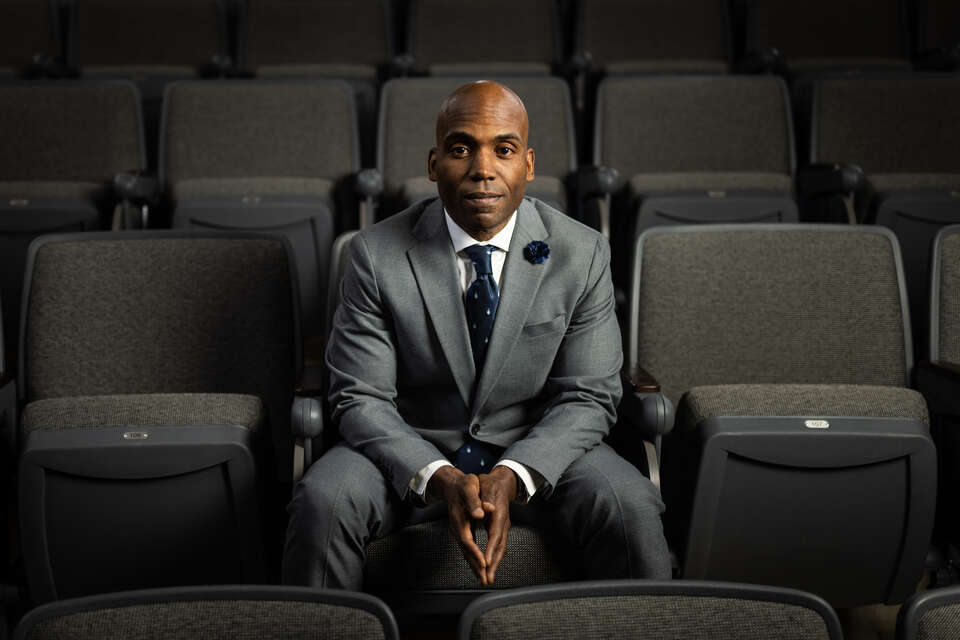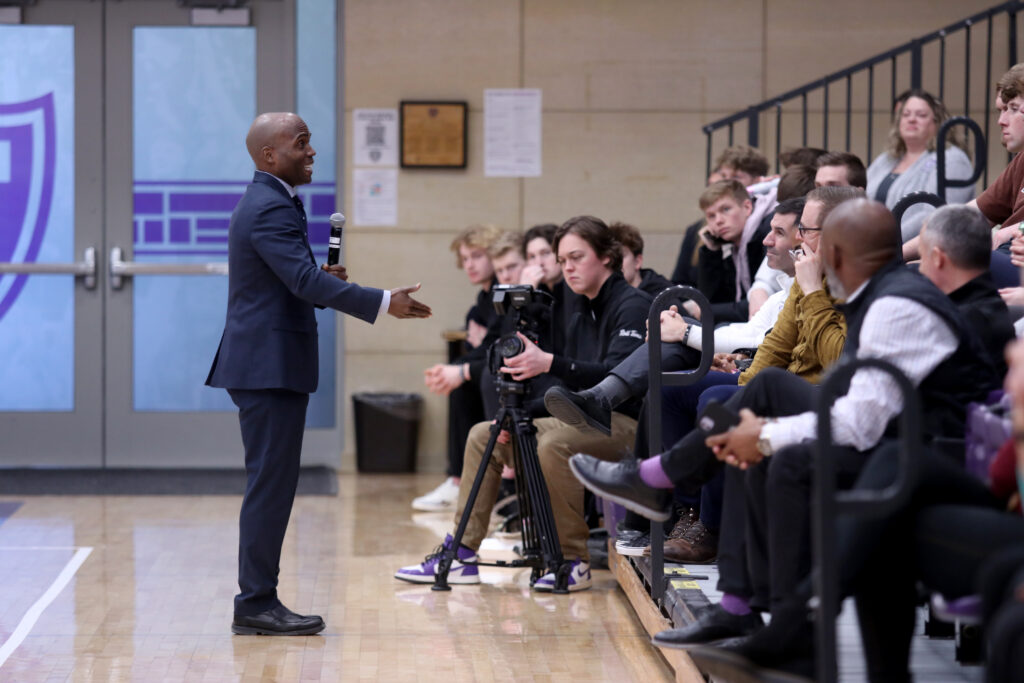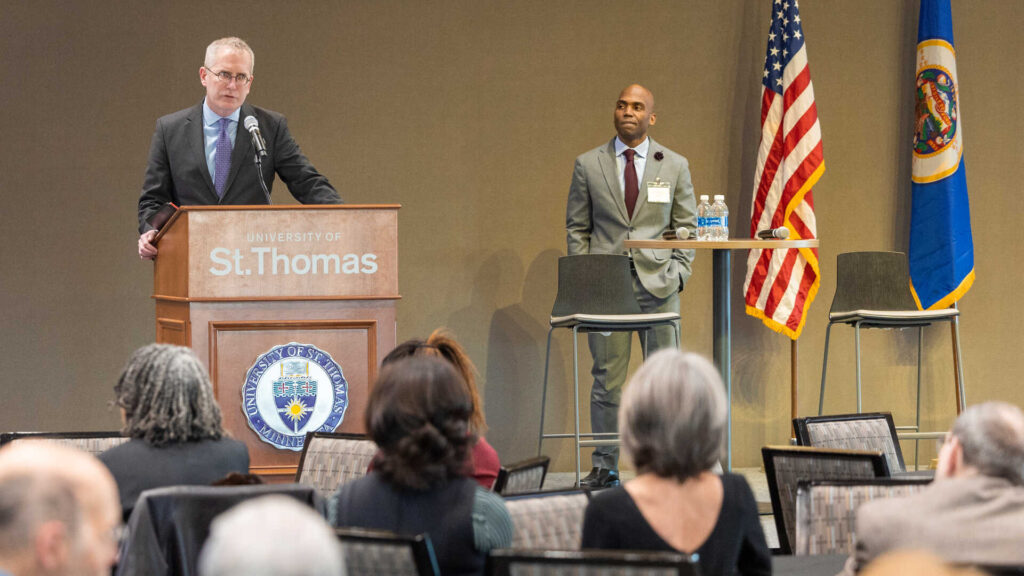Dave St. Peter, president and CEO of the Minnesota Twins, and Yohuru Williams, PhD, director of the Racial Justice Initiative at the University of St. Thomas, sat down at Target Field to discuss the historical and contemporary lessons being learned at the intersection of race and sports.
The conversation was aired in the middle of the World Series between the Philadelphia Phillies and Houston Astros – an event that has prompted national conversations centered on how Major League Baseball has a diversity problem given there were zero African American players participating in the 2022 World Series.
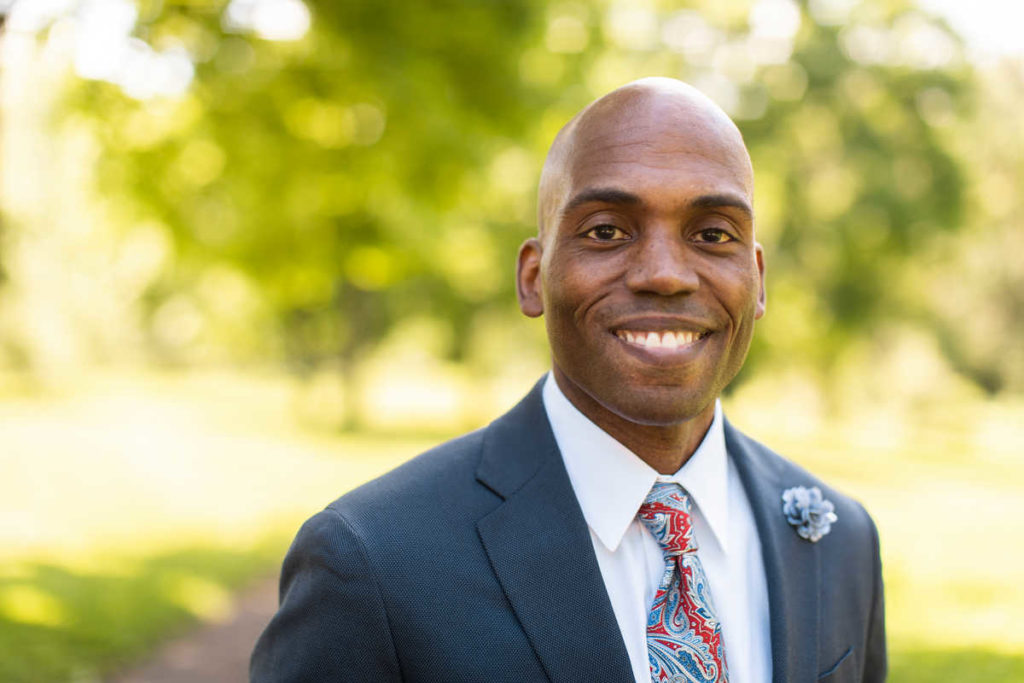
Williams, a noted scholar of Black history and an activist for racial justice through education, examines the intertwining nature of economic and racial issues that continue to perpetuate inequities in sports and throughout society in Call Him Jack, a recently published book about Brooklyn Dodgers legend Jackie Robinson.
With the book as a point of reference, as well as how the U.S. is grappling with how to address racial issues in a deeply divided society, the two men covered a variety of topics.
Here are highlights from their conversation.
Is racism on the rise in sports?
With the lack of American-born Blacks playing in the 2022 World Series and multiple in-depth reports about the failure of the Rooney Rule in the National Football League, Williams asked St. Peter whether he thought racism was increasing in professional sports.
“I want to believe that it’s better, I’m hopeful that it’s better,” said the Twins CEO. “But just like every other facet of society, we have racism in sports. We have not eliminated it in sports.”
St. Peter, however, said he feels progress has been made and that generationally, there has been a shift in thinking.
“I know my kids are much better equipped than I was at their age to think about diversity, to think about inclusion and to think about how we interact as people,” he said.
Diversity at the Minnesota Twins
The Twins are one example of progress being made. With one of the most diverse rosters in MLB, the Twins are doing more to celebrate diversity and to increase opportunities for young people from underserved communities.
One of the drivers of these efforts, St. Peter said, was the murder of George Floyd in Minneapolis on May 25, 2020. Floyd’s death in their city motivated the Twins organization to lean into efforts around diversity in an unencumbered way, including outlining specific action steps to create a more inclusive environment.
“I’d say we’re in the early innings of that game, but I’m encouraged by the work that’s been done.”
Representation matters at all levels
This World Series marked the 50th anniversary of Jack Robinson’s death. Williams said 50 years ago (about a week before he died), Robinson threw the ceremonial pitch at the World Series and gave a speech to the crowd saying he would not be happy until there is representation of people of color at all levels of baseball.
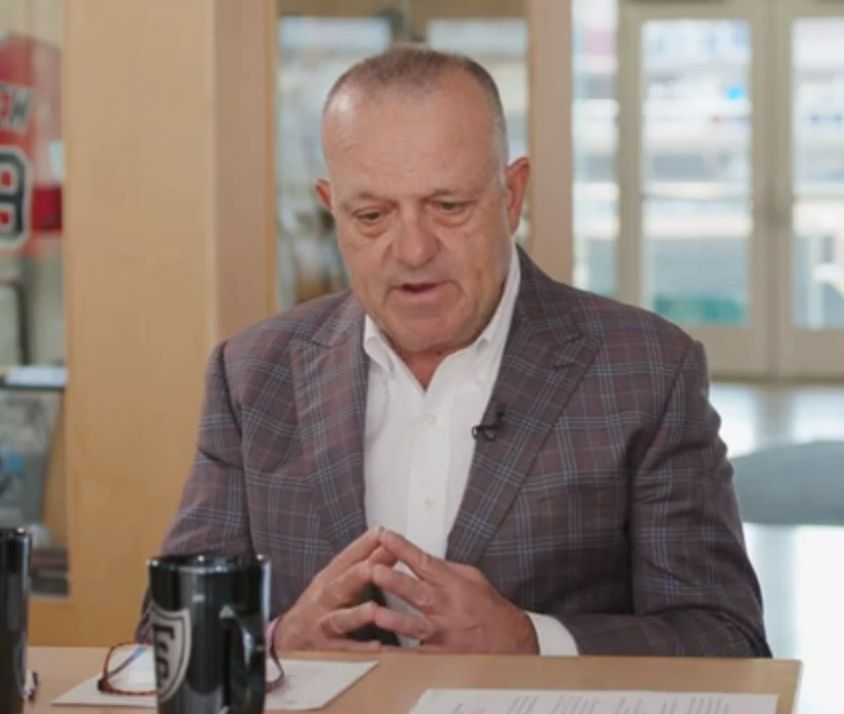
St. Peter acknowledged that for any organization to achieve success it takes commitment through a relentless approach across all areas where improvement in diversity, equity and inclusion is possible.
“We’re only going to be great if we’re great in all areas, and that includes diversity across our front office, on our team and in our coaching staff,” St. Peter said. “And not just in the confines of the people that work for the Twins, but more importantly, the people that come to our games, the people that we partner with in the community, the vendors that we select. We have a lot of work to do there.”
He added: “Our front office should mirror our community.”
Athletes as activists
Of course, it wouldn’t be a conversation on race and sports without discussing Colin Kaepernick, the former NFL quarterback who has become known more for his civil rights activism than his spectacular athleticism on the football field.
Williams pointed out that the nation was in the middle of a debate about reactions to Kaepernick and some other players taking a knee to protest what he called “the unjustified killings of Blacks by police” when Floyd was murdered.
“You get pushback from fans who say, ‘I want my sports to be divorced from politics,’” he said.
“What’s the appropriate response for fans?” Williams asked St. Peter.
St. Peter said he expects that athletes using their platform to advance society will become more prominent, particularly stating that he believes young athletes of color will continue to feel more comfortable to use their voice as they rise to the professional level – and that’s a good thing.
“I try to express to those folks that players are going to be themselves, we encourage players to be themselves,” he said. “Fans will ultimately have a choice. Do they want to support that player or that team or not, and I think it’s going to become much more commonplace.”
Citing Jack Robinson’s recognition of the importance of free speech in America, and highlighting Minnesota Lynx basketball player Maya Moore as an example of meaningful activism in sports, Williams added, “Here in the United States, we should celebrate that athletes are able to use their platform in that way.”
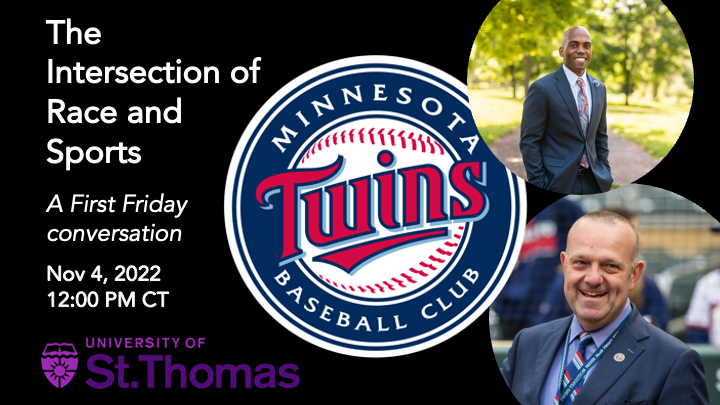
Hear more
Watch the entire recorded conversation to hear this month’s First Friday speakers discuss a variety of other topics, including: gender equity and equal pay in sports; growing the game of baseball in a more inclusive way through grassroots efforts; how the University of St. Thomas should be thinking about racial equity in its transition to D-I athletics; and the individual and organizational importance of making a commitment to improvement on a daily basis.
“Athletes remind us that we all have an opportunity in significant ways to make a difference.”
Yohuru Williams
“You have to understand the history, including the ugly history, in order to create the vision for a better tomorrow.”
Dave St. Peter
